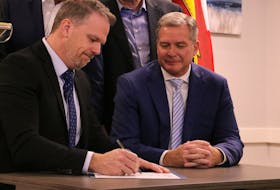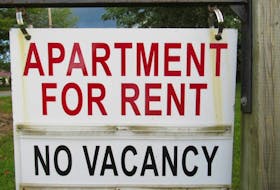John Palmer
Guest Opinion
Alberta Premier Jason Kenney has opened fire on the nation’s equalization obligations under the Canadian constitution.
This program is not just important to poorer provinces, such as P.E.I., it is vital to our ability to function as a province. The notion that Alberta’s fiscal problems are somehow tied to the nation’s equalization program is dangerously misguided.
It should be emphasized that equalization is not a transfer of Albertan tax revenue to the poorer provinces. It is provided to provinces by the federal government out of federal funds as a constitutional obligation. While Alberta may not presently qualify for equalization, it does receive significant federal support through Canada Health and Social transfers in the amount of $6.4 billion this year. This compares to $230 million in such transfers for P.E.I.
These transfers help Albertans enjoy the lowest rates of provincial taxation in Canada.
The overall level of “tax effort” of Alberta is estimated at about 70 per cent the national average.
By contrast, the level of tax effort on P.E.I. is in the order of 110 per cent.
The average assessed income of Albertans at $57,100 per tax filer compares to only $39,800 here, and the income tax rates there are about two thirds of ours. Further, Alberta is the sole province to not have its own sales tax. The only parts of Canada to pay less income tax and have no local sales tax are the territories.
All provinces are entitled to federal equalization, if their ability to raise revenues to maintain reasonably comparable levels of provincial public services across Canada falls below a certain standard. Further, the degree of revenue raising disparity determines the level of equalization to be received. Given our relatively low incomes and virtually non-existent resource revenues, P.E.I.’s equalization needs are very high.
If a province’s revenue base rises above the standard, it will not qualify for equalization, as is the case for Alberta at the present. But provinces may be entitled in some years and not in others, depending on their economic circumstances, as has occurred in Saskatchewan, Newfoundland and other provinces from time to time.
In 2019, P.E.I. is receiving $419 million in equalization. That figure is 22.4 per cent of all our provincial government revenue, and is equivalent to our total provincial personal income taxes. In 2019, this amount also equals the whole budget of the department of education. So, if you remove equalization as Premier Kenney proposes, our province would need to double its personal income tax or make horrendous cuts to public services. The economic repercussions of either action would be catastrophic, and realistically, the province would be forced to seek other forms of financial support in order to continue to function.
Maybe territorial status is an option? With a population one quarter the size of P.E.I., the Yukon government is receiving $1,057 million in federal fiscal funding this year. This amounts to $25,900 per person compared to $4,135 per person here (equalization plus the social and health transfers). With relatively high incomes and very low income tax, Yukoners also pay no territorial sales tax. Of course, it does get very cold there in the winter!
Premier Kenney perhaps does not know that Canada’s equalization program is the envy of many federal states around the world.
It provides a financial safety net to all provinces to ensure that reasonably comparable provincial services can be sustained throughout Canada. The provincial bond rating agencies take it very seriously. I frankly doubt his proposal to remove equalization from the constitution will go very far, I hope.
John Palmer is a resident of West Covehead and a former director of economics, statistics and fiscal relations for the province.








